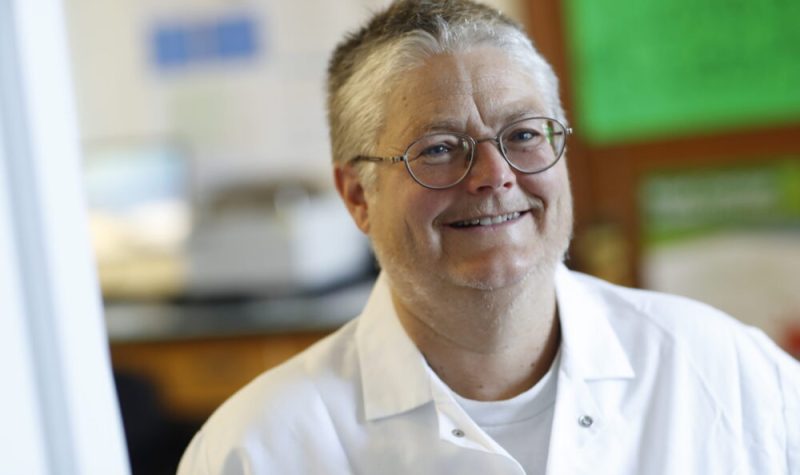If you’ve had COVID-19, Dr. Vett Lloyd wants to speak to you. In fact, even if you haven’t been diagnosed with the disease, but are in a high-exposure group, Lloyd wants to hear about your experience.
The Mount Allison researcher, who normally spends her time on Lyme disease, is studying the long term health implications of COVID-19.
In the first phase of her study, Lloyd is looking to survey anyone who has experienced COVID-19, with or without symptoms, with mild or severe cases. She’s also hoping to get participation from those who are at high risk for exposure, like people working in health care, education, and retail.
Lloyd says that early on in the study of COVID-19 it was discovered that while most people recovered from the disease, “there was a subset of people who even after the period of time you’d expect the virus to be gone, they remained ill, with anything along from fatigue, brain fog, muscle pain.”
Lloyd says COVID-19 is not the first coronavirus disease to feature long term complications.
“We’d seen that with SARS, as well. And that was a similar type of virus," she says.
“So we wanted to find out what was going on with the people who ended up with chronic ongoing symptoms after the COVID infection,” says Lloyd.
People with ongoing symptoms, sometimes called COVID long-haulers, have reported issues having their symptoms recognized for what they are.
Lloyd says she has heard such stories from some.
“I think the medical profession is catching up. Everyone is learning very quickly about this illness,” she says. “But yes, it’s difficult when you end up with any kind of chronic disease, and whether that’s after COVID, or after Lyme disease, or after a surgery, after any kind of traumatic experience. Some people will have problems retaining their health fully. And it’s very hard to track down what the problem is.”
Lloyd has had 200 survey participants so far.
"And we’re really grateful for that, because these are people who have been and remain very ill,” says Lloyd. “To take the time to fill out a survey when you’re ill is just a really great commitment to research.”
And now the call is being broadened to include, “people who are not ill or who have recovered or people who we didn’t connect with the first time around,” says Lloyd.
Participants for the first phase survey can come from anywhere in Canada.
“We want to find out what your experiences were like,” she says. “And then from that, we’re going to see if we can find a pattern.”
Lloyd says she’s been encouraged to seek out people in the Atlantic provinces to participate.
“I guess it says something about the Maritimes that one of the reasons they were so anxious to include us is that they wanted a pool of people where not everyone had experienced COVID,” says Lloyd.
It’s early days for any sort of statistics on how many people experience long-haul COVID-19 symptoms, but Lloyd says, “it looks like it’s anywhere from 10 per cent to 40 per cent, as a very rough estimate.”
“It does depend on where you are in the world,” she says, “which probably relates to the genetics of the people who live there, the strain of virus… your gender, your age, whether or not there’s anything else going on with you, whether you’ve had previous infections that you didn’t notice but which become reactivated,” she adds.
“There’s a lot of stuff going on,” says Lloyd. “And we’re trying to tease out what that is, because you can’t really fix it until you know what the problem is.”
Lloyd says privacy of participants in the survey will be well-respected, and the study has passed ethics reviews at two universities.
Two follow-up studies are being planned, one to check in with people after a year, and another focused on populations in Ontario and New Brunswick which will incorporate blood testing, says Lloyd, “to see if we can help figure out what’s going on with those who remain ill.”
The study is funded in part by the New Brunswick Innovation Foundation in partnership with the New Brunswick Health Research Foundation and the Atlantic Canada Opportunities Agency.
Click here for a link to Dr. Vett Lloyd’s survey.
Hear Vett Lloyd in conversation on Tantramar Report:


